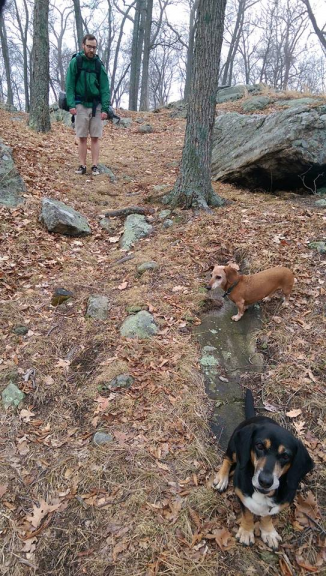Spotlight on Vanderbilt Biostatistics: Simon Vandekar
Meet one of our newest faculty members, Dr. Simon Vandekar, an Assistant Professor in the Department of Biostatistics. He is a great addition to our group and it's a pleasure to get to know him.
What are your research interests and what is the focus of your research? What have been the major findings so far?
My statistical research develops inference procedures for high-dimensional data with a particular focus on neuroimaging data. This research has been published in Biostatistics, Neuroimage, and JASA. My collaborative research studies how the brain changes through development and how it is affected in psychiatric disorders. This work has been published in the Journal of Neuroscience, Nature Communications, and Science. My research has relied on family-wise error rate, spatial extent inference, and semiparametric procedures and I would like to begin to develop nonparametric procedures that control the false discovery rate. I am also interested in high-dimensional measures of replicability and the stability of findings across varying preprocessing parameters.
Tell us about any honors you have received, awards you have won or any significant publications you've had.
I was awarded the Saul Winegrad Oustanding Dissertation in my graduate group when I graduated in May 2018. My most recent first author publications were in JASA, Biostatistics, and the Journal of Cerebral Blood Flow and Metabolism.
What was your draw to statistics and what are some of your goals?
I realized I loved statistics after working in a neuroimaging lab after graduation with a BS in psychology. The goal of my research is to develop statistical tools that can be immediately applied to real world problems. I am most interested in semiparametric methods to do this.
Can you share the status of any of your past students? What is your philosophy about teaching or research?
I haven’t mentored any students, but I look forward to the opportunity! I personally learn mathematical or statistical tools best when I use them to solve problems in my research. I think statistical methods should try to make realistic assumptions about the data and that the analysis approach should be determined by particular questions or hypotheses.
What makes Vanderbilt special in your experiences of collaborating with others? What are your thoughts on controversial statistical topics such as adjusting the p-value for multiple comparison, the choice between Bayesian, likelihood, or frequentists, ethical issues, etc.?
The collaborators I’ve worked with here seem extremely focused on the wellbeing of their patients, which makes working with them more rewarding. My work is in multiple comparisons adjustment and I see it as a way for understanding the amount of bias induced by looking at hundreds of thousands of variables, but I don’t think that we should use hard thresholds to decide about the unknown state of the world. Two studies that presents results with and without adjustment are equally valid, but the first provides more evidence against the null hypothesis. I am interested in learning more about semiparametric likelihood and Bayesian methods. I like the probabilistic statements the Bayesian philosophy affords but have an aversion to priors or heavily parametric models because I’m not sure how assumption violations affect the bias and interpretation.
Tell us about your life outside of Vanderbilt. Do you have a significant other? What about your hobbies?
My spouse currently lives in Houston with our two dogs (a dachshund and a basset-lab mix), where she is doing an internship, but she will get to move here soon! I like hiking, camping, running and visiting the many delicious breweries we have in Nashville. I also like foraging for mushrooms.
Finally, what is something about you that most people at Vanderbilt still don't know about you? (Until now, of course!)
My wife and I dabble in extreme sports. My favorite was hang gliding, but we also tried sky diving and go scuba diving not too infrequently.
